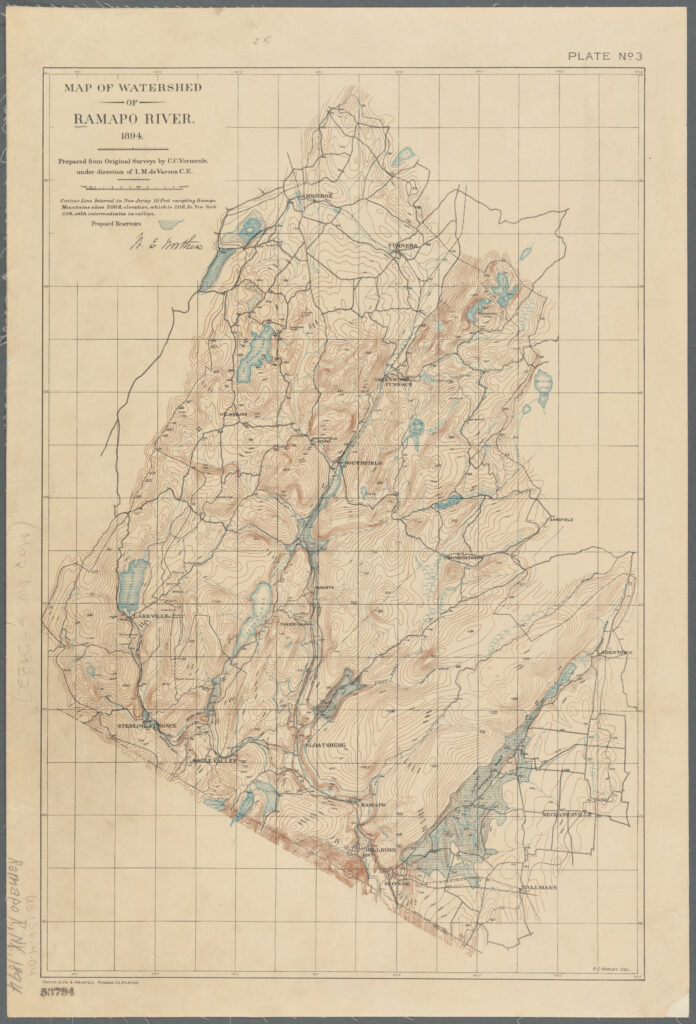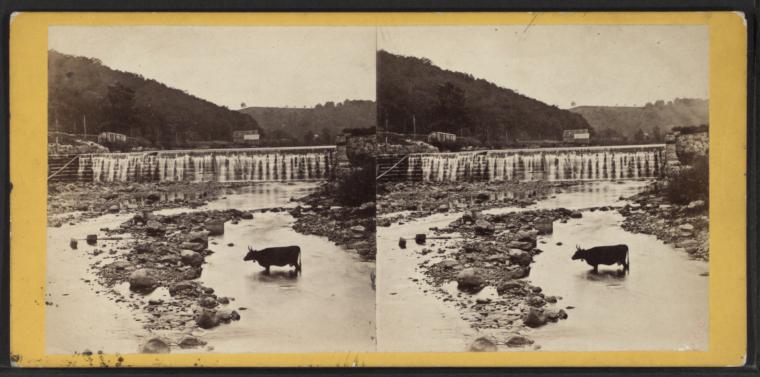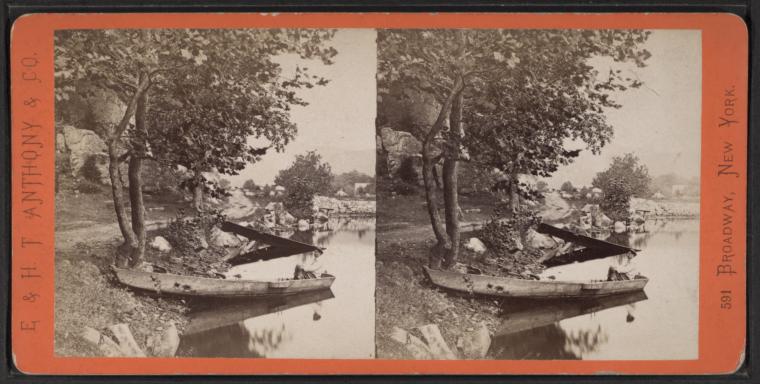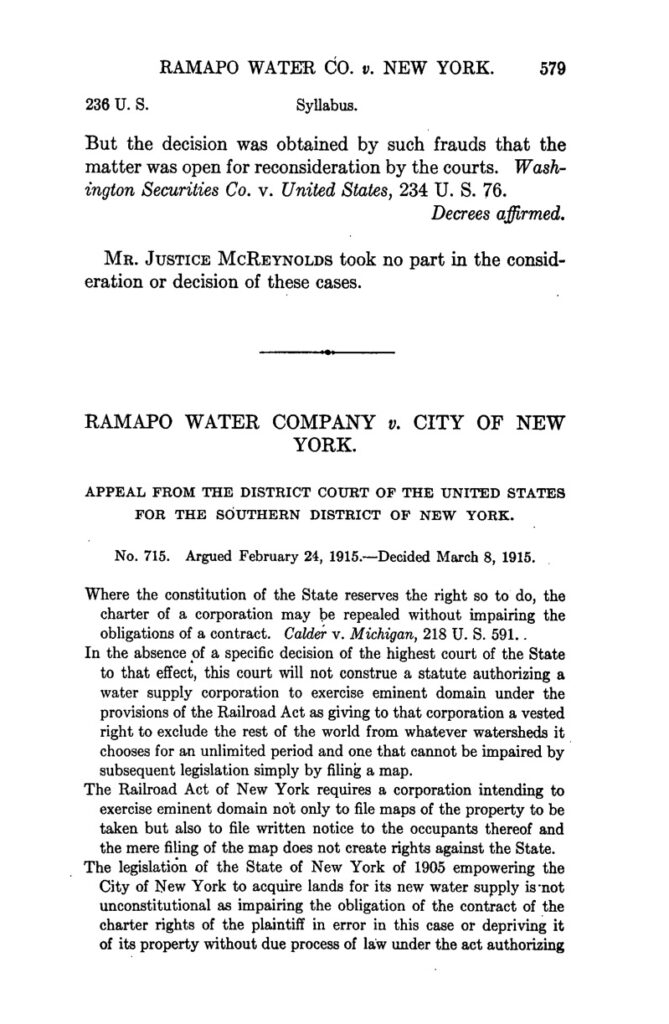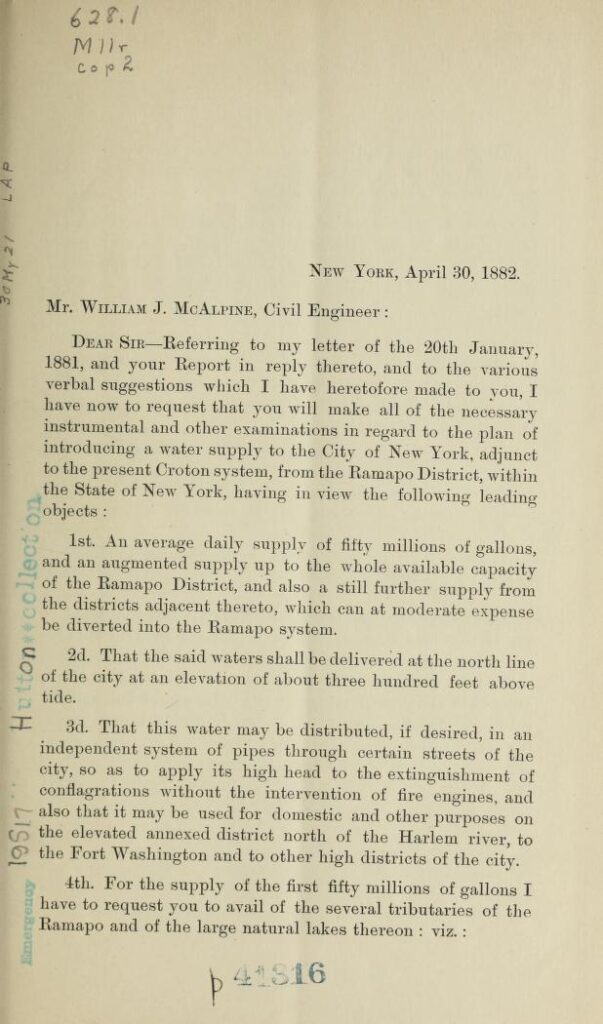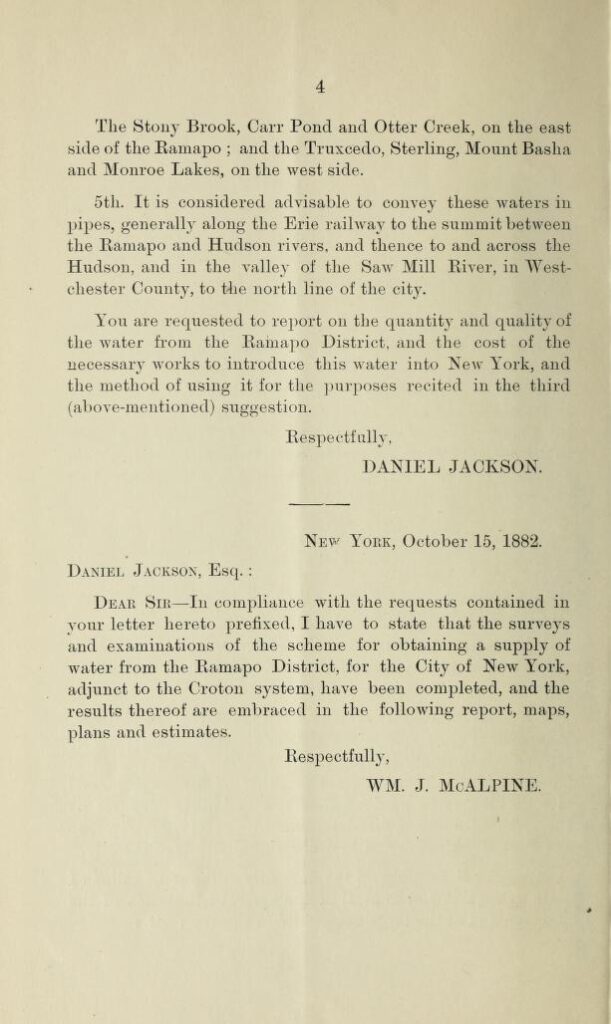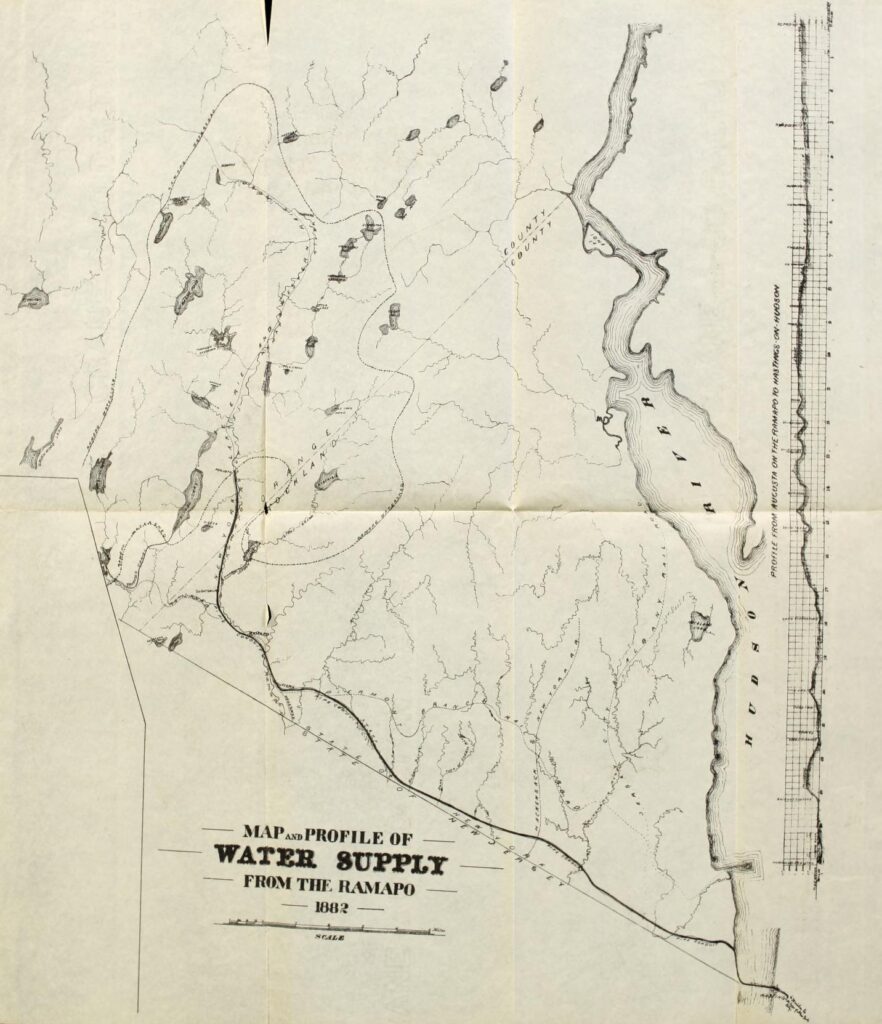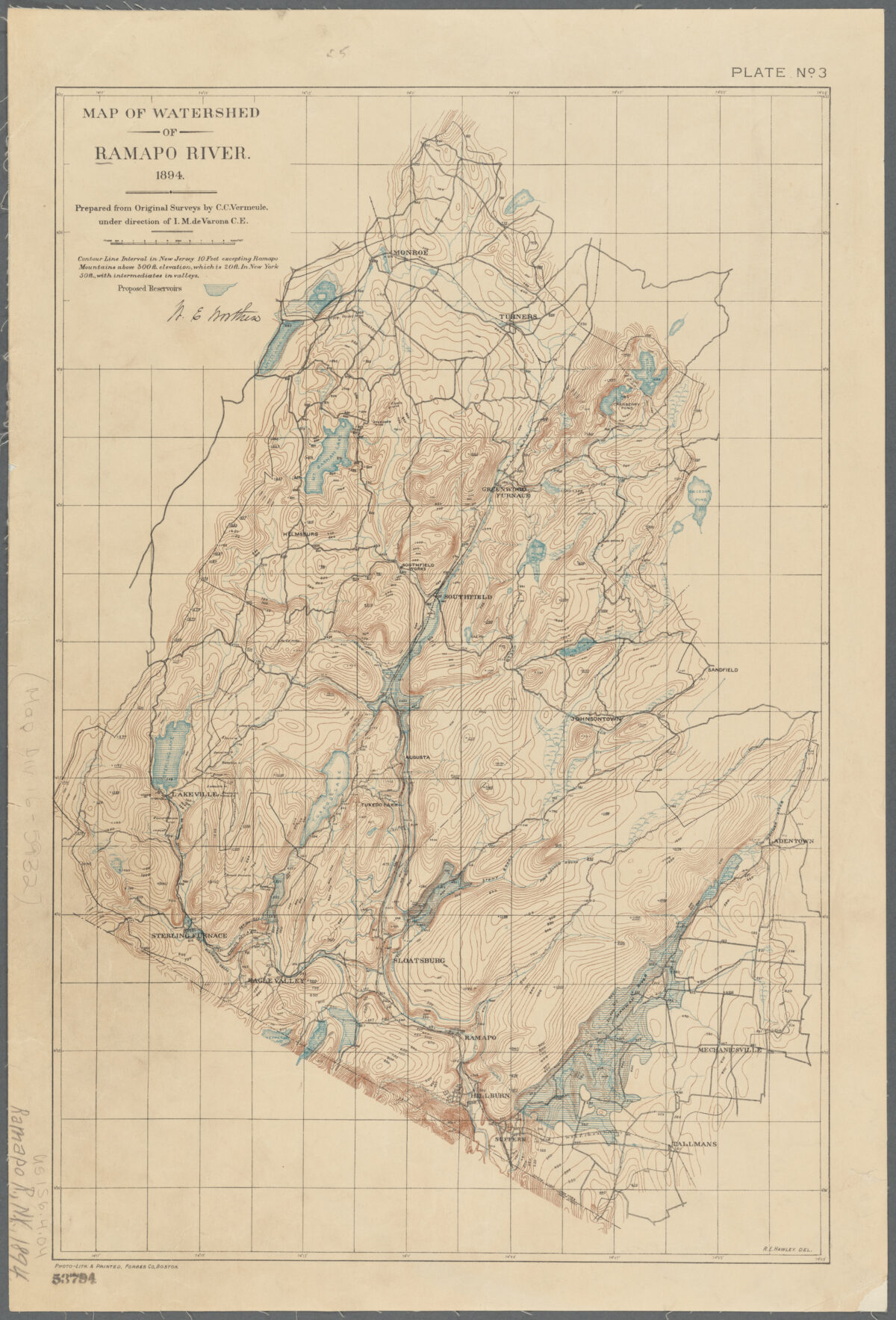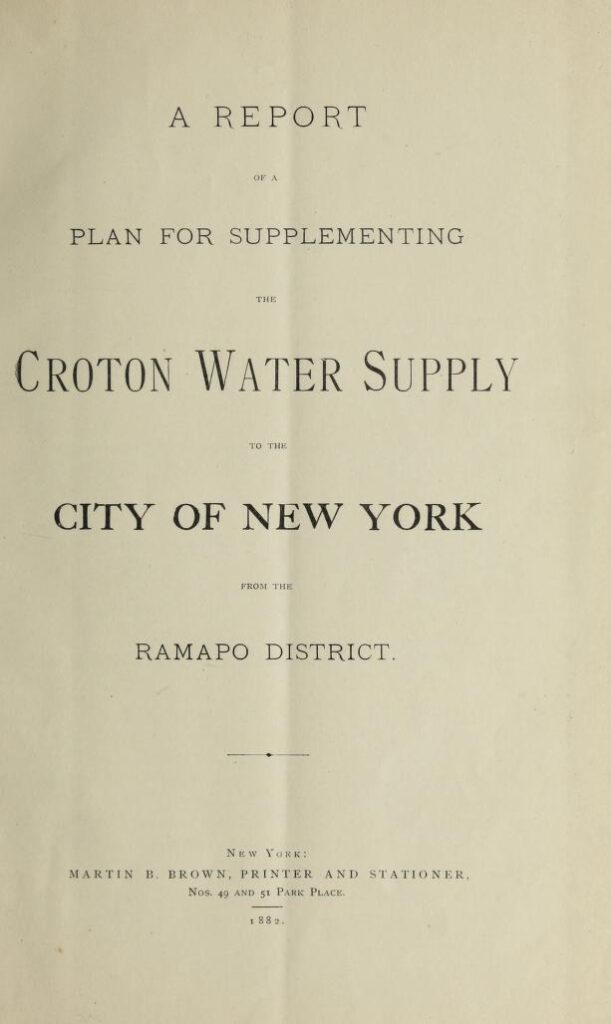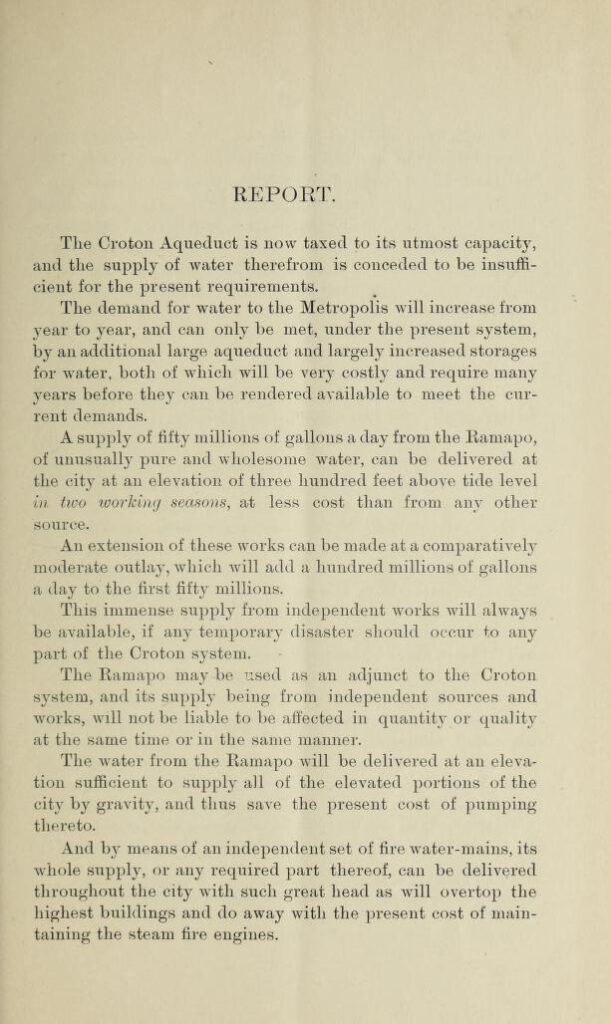Ramapo
As New York City looked to expand its water supply beyond the Croton Dam, both public and private sectors stymied the city’s ability to gain access to drinking water. The most egregious was likely the private Ramapo Water Company (likely named after the town in Rockland County, which was named after the Ramapough Lenape Nation meaning “sweet water” or “slanting rocks”), who attempted to gain control of the Catskill watershed in anticipation of the city’s needs. In 1895, the State’s Legislature granted Ramapo land and water rights in the Catskills. Under Ramapo’s control, the city would lose control over the design and cost of the city’s water supply. Furthermore, it was publicly disclosed that privatization would result in an annual municipal deficit and almost triple water costs to the city. Under pressure from the City Merchants Association and the City Comptroller, the State Legislature repealed its decision in 1901.
